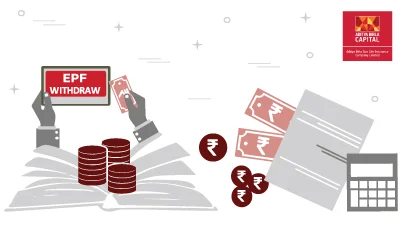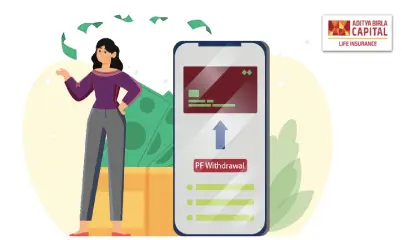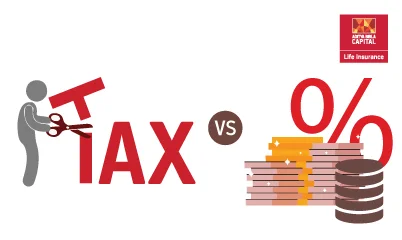Sahaj or ITR-1
Applicability
Taxpayers who earned income during the financial year under one of the following heads of income must file Form ITR-1:
- Earnings from a job or a pension
- Revenue from residential property (excluding cases where the taxpayers want to carry forward a loss from this head of income)
- Revenue from agriculture of up to Rs.
- The earnings from other sources. (Excluding any winnings from the lotto or winning racehorses)
Not Applicable
ITR-1 does not apply to the taxpayer who meets any of the following criteria:
- Gains from investments
- Income from a job or company
- Income from many residential properties
- Total Annual Income is more than Rs. 50 lakhs
- Agricultural earnings of more than Rs. 5000
- The taxpayer has any overseas property or income.
- The taxpayer serves as a company's director.
- At any moment throughout the fiscal year, the taxpayer holds a position in unlisted equity shares.
- Being a resident, the taxpayer has signing power over any accounts outside India.
- The taxpayer, a resident, has any financial stake in a company outside India.
ITR-2
Applicability
ITR 2 applies to people and HUFs who have earned money, such as:
- Either a pension or a salary
- Gains from a residential property
- additional sources of income. (Including any winnings from the lotto or winning racehorses)
- The sum of the following must be more than Rs. 50 lakhs:
- a. Salary or pension
- b. Household assets
- c. Supplemental income
- Agricultural earnings of more than Rs. 5000
- The taxpayer has any overseas property or income.
- Taxpayer serves as a company's director.
- Gains from capital investments
- At any moment throughout the fiscal year, the taxpayer holds a position in unlisted equity shares.
- The taxpayer is an RNOR resident or resident who is not typically a resident of the same place.
Additionally, suppose the taxpayer's income is combined with the payment of another assessee whose income falls into one of the categories above. In that case, the taxpayer must submit an income tax return-2.
In this case, the spouse, child, or another assessee who has their income combined with the taxpayers is the other assessee.
For taxpayers with income from a business or profession, ITR-2 is not relevant. Depending on a few factors, these taxpayers must submit an ITR-3 or ITR-4.
ITR-3
An individual or HUF taxpayer who earns money through a professional or private company may submit an ITR-3. Additionally, the taxpayer must fulfill the following conditions:
- The taxpayer serves as a company's director.
- At any moment throughout the fiscal year, a taxpayer invests in unlisted equity shares.
- The taxpayer receives money from the company as a partner in that business.
The taxpayer may also submit ITR-3 forms for income from a salary or pension, a home, and other sources.
ITR-4 or Sugam
Individuals, HUFs, and partnership businesses (except LLP) with income from business or profession may use ITR-4 or Sugam ITR-4. The ITR-4 form may also be used by taxpayers who choose a presumptive income strategy under sections 44AD, 44ADA, and 44AE. Additionally, the turnover has to be under Rs 2 crore. The taxpayer must submit ITR-3 if the revenue exceeds Rs 2 crore.
Not Applicable
ITR-4 does not apply to a taxpayer who meets any of the following criteria:
- The whole revenue is more than Rs. 50 lakhs.
- The taxpayer has any overseas property or income.
- Taxpayer serves as a company's director.
- The taxpayer is an RNOR resident or resident who is not typically a resident of the same place.
- Income from many residential properties
- The taxpayer wanted to carry over a loss from the current year or had losses from prior years that were carried forward.
- Being a resident, the taxpayer has signing power over any accounts outside India.
- If a resident taxpayer has any financial stake in an organisation outside of India
- The taxpayer received any earnings from sources outside of India.
- At any moment throughout the fiscal year, the taxpayer holds a position in unlisted equity shares.
ITR-5
The following groups of taxpayers are covered under ITR-5:
- Company Partnerships
- Limited liability companies (LLPs)
- Association of Persons AOPs
- BOIs: Body of Individuals
- Artificial Judicial Person, or AJP.
- Estate of the Bankrupt
- The deceased's estate
- Trust and investment funds for businesses
ITR-6
Companies must submit ITR-6 online, and this ITR is relevant to them. ITR-6 does not apply to any business that generates revenue from real estate owned for charity or religious reasons. Additionally, these businesses claim an exemption by Section 11 of the Income Tax Act of 1961.
ITR-7
ITR-7 applies to individuals and businesses that must be compliant with Section 139 (4A), Section 139 (4B), Section 139 (4C), Section 139 (4D), Section 139 (4E), or Section 139 to submit a return (4F).
Below, each of the sections above is thoroughly explained:
Article 139 (4A)
This clause applies to anybody receiving income from assets held in trust or by another kind of legal obligation solely or principally for charitable or religious purposes.
Article 139 (4B)
Any political party is permitted to use this area. If the entire income is more than the maximum amount exempt from income tax under section 139A, then ITR-7 is applicable.
Article 139 (4C)
Every taxpayer who:
- Organisation or establishment mentioned in Section 10 (23A)
- Organisation mentioned in section 10 (23B)
- Association for scientific research
- Agency of News
- Any hospital or other medical facility, a university, or educational or research institution.




 What's inside?
What's inside?
 Home Loans
Home Loans
 Personal
Loans
Personal
Loans
 SME Loans
SME Loans
 Business Loans - Udyog
Plus
Business Loans - Udyog
Plus
 Loan against Securities
Loan against Securities
 Mutual Funds
Mutual Funds
 Stock and
Securities
Stock and
Securities
 Portfolio
Management Services
Portfolio
Management Services
 Pension Funds
Pension Funds
 Life
Insurance
Life
Insurance
 Health
Insurance
Health
Insurance
 Wellness
Solutions
Wellness
Solutions
 Pay Bills
Pay Bills
 Pay anyone
Pay anyone
 Pay on call
Pay on call
 Payment
Lounge
Payment
Lounge
 ABC Credit
Cards
ABC Credit
Cards

 1800-270-7000
1800-270-7000









